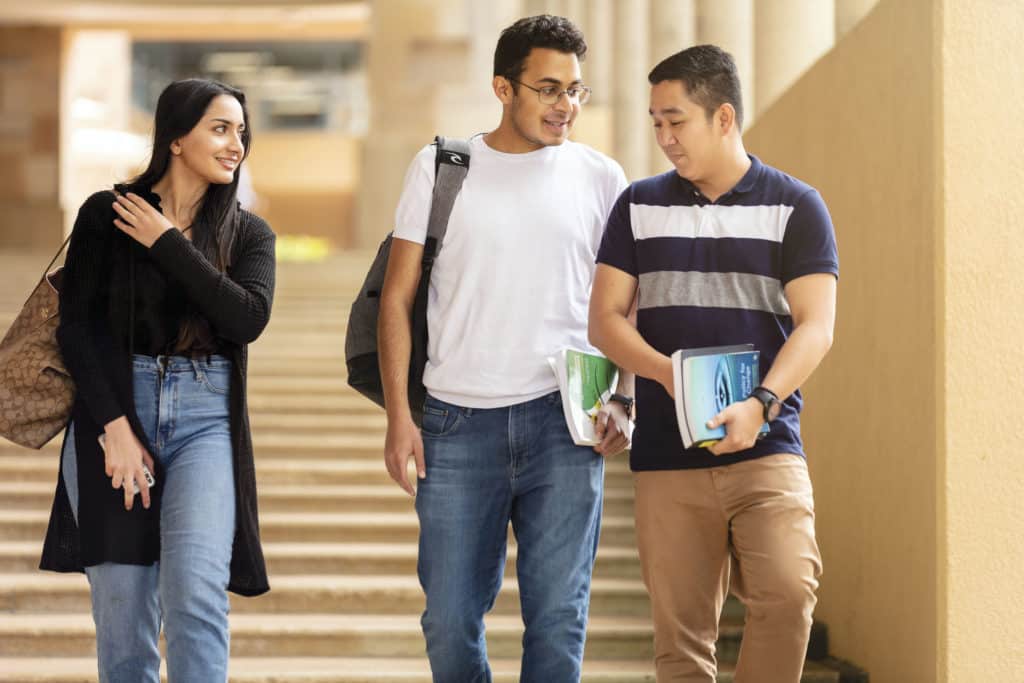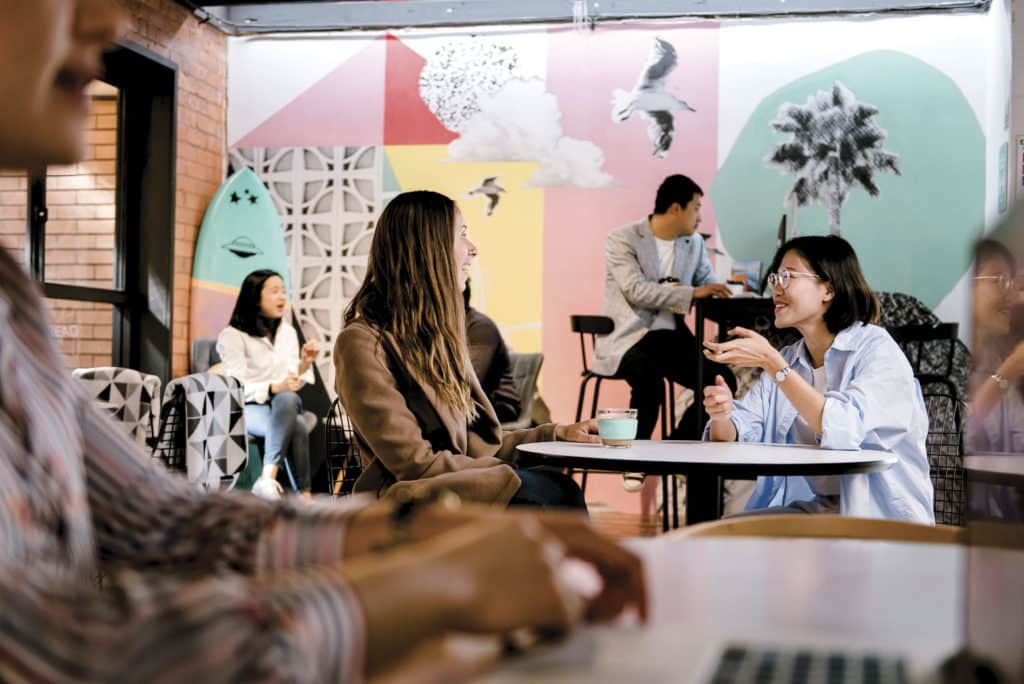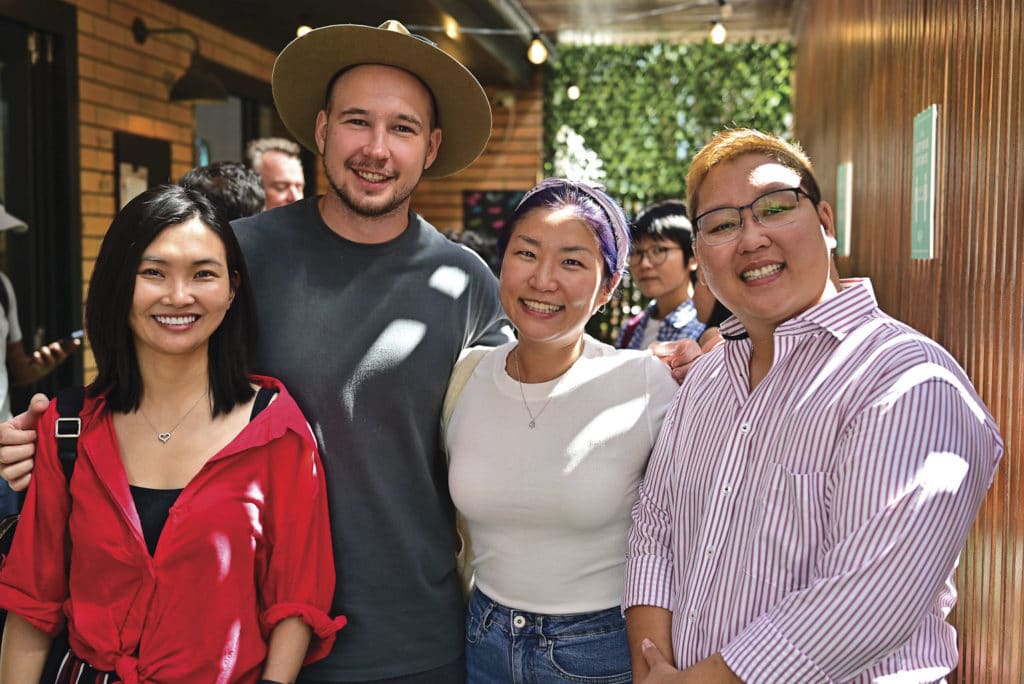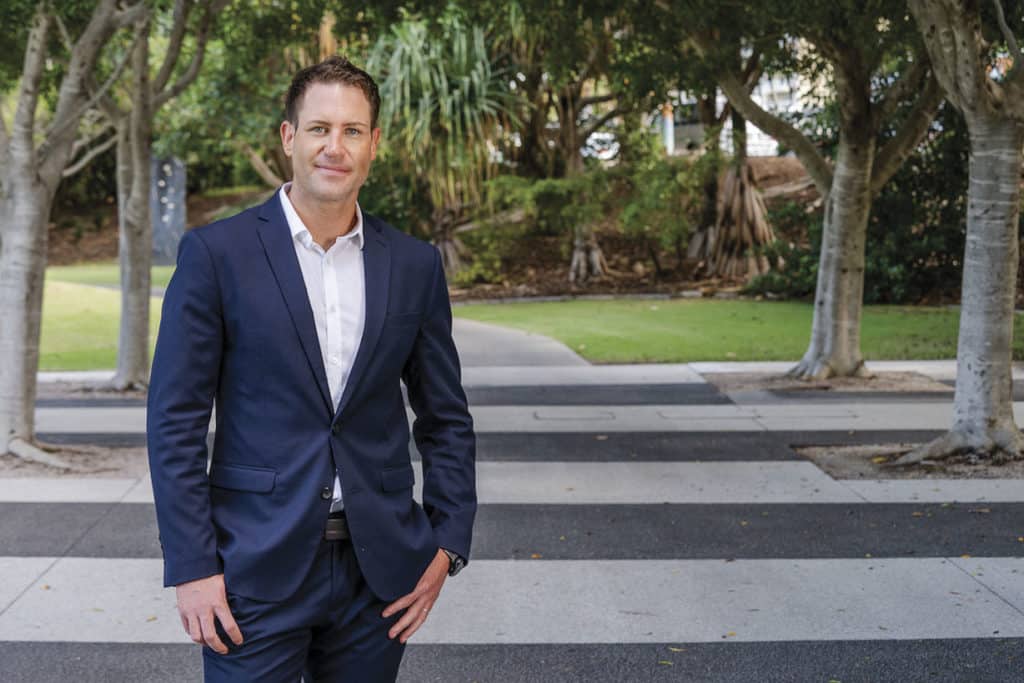BUSINESS & EDUCATION
The road to recovery

WORDS: Trevor Jackson PHOTOGRAPHY Supplied - Study Gold Coast
Education was Australia’s fourth-largest export in 2019, generating $32 billion, and was growing at an exponential rate. But when our international borders closed, so too did the sector’s prospects. As the industry begins to rebuild, how is Australia’s largest regional education centre coping post-pandemic and is it still a desirable study destination?
LATE last year, the economic picture for the Gold Coast was grim. International borders were closed, there were significant restrictions on domestic visitors entering Queensland and local businesses were hurting.

Gold Coast Student Fair
The city’s education sector told a similar story. It had been almost two years since there had been any international student arrivals, many of its institutions were struggling to keep their doors open and the businesses that depended on the sector had taken a significant hit.
Prior to the pandemic, the Gold Coast’s education sector was worth $1.9 billion to the local economy and with 32,000 international students, it was Australia’s fastest-growing study destination, increasing on average by more than 10 per cent per annum in the five years leading up to the pandemic.
As a city with an unparalleled lifestyle, abundant with natural beauty boasting more than 200 education and training institutions, including three globally ranked universities, it wasn’t hard to see why the Gold Coast had become such a desirable choice. But that was BC (Before COVID).

International students began arriving back on campus in 2022
International students were particularly vulnerable during the pandemic, as local businesses closed their doors and many of them lost their casual jobs and their only source of income. Students struggled to pay their essential bills for food and shelter. With the students in lockdown, and their families similarly stranded overseas, it was the city’s educators and Study Gold Coast who came to the rescue.
Ably assisted by local charities and generous businesses, tens of thousands of chef-prepared meals and groceries were provided to the local student community through the Gold Coast Student Hub, and as the pandemic continued, the city’s institutions and the many businesses that rely on the sector for their livelihoods began to struggle too.

The Gold Coast Student Hub runs many support services for students
It’s said that adversity creates new opportunities and the pandemic demonstrated just how resilient the Gold Coast education sector is, as businesses and institutions became more flexible and agile in their approach while thinking more laterally towards the potential possibilities.
To keep their operations viable and maintain their relevance, the city’s educators and their business partners reinvented their traditional business models by implementing a range of digital initiatives, moving entire courses online and even conducting virtual study tours for overseas institutions whose students had suddenly lost their treasured opportunity to visit the Gold Coast.

The smiling faces of international students at the Gold Coast Student Hub
At the height of the pandemic, Study Gold Coast launched the Gold Coast Student Jobs website and app. It was a win not only for the city’s students needing to find work, but also Gold Coast businesses, as the platform put both prospective employer and employee in direct contact at no cost to either party. In creating those opportunities, the platform was a real gamechanger for the sector and the local economy, with many students gainfully employed through the site.
With the announcement that our international borders would open just before Christmas, the Gold Coast’s educators breathed a collective sigh of relief. The sector has rebounded much faster than anticipated, with international students climbing to 76 per cent of their pre-pandemic numbers within six months of opening.
As international students return to the Gold Coast in their thousands they are not only helping to regenerate the education sector – they are also helping to meet the demand of staff shortages in many other industries by filling part-time and casual jobs, in turn boosting the city’s economy.

Study Gold Coast CEO Alfred Slogrove
Study Gold Coast CEO Alfred Slogrove says there’s no shortage of anecdotal evidence regarding the impact the students have made since returning to the city.
“The Gold Coast Student Hub is the focal point of our student programs and support services,” he says. “At the height of the lockdowns during the pandemic, we transferred our services online as a virtual facility. This year is a totally different story. The Hub is abuzz with student activity, with an average of 75 students visiting each day.”
With the Gold Coast buoyed by the new influx of students, Alfred says the city wanted to welcome its new residents while also acknowledging those who have lived through the difficult times during the past two years.
“The Gold Coast Student Fair was created to embrace the rich diversity of our student community with a celebration that included entertainment, cultural performances, games and food from all over the world,” he says. “It was wonderful to not only see so many of the city’s students attending, but their friends and families as well.”
The inaugural event was so successful it looks set to become a regular fixture on the city’s events calendar. The feedback from students was also overwhelmingly positive, the mood perhaps best captured by Ugandan student Kaiza Bertha Namuli, from Griffith University.
“I know a lot of students have been waiting to get here and being among the first to arrive feels nice,” Kaiza says. “Mostly, it’s a lot of relief and a lot of excitement, but it also feels so surreal. I just have to keep reminding myself that it is real and I am finally on the Gold Coast after two years of waiting.”
The world may have changed since the pandemic, but it would seem the allure of the Gold Coast as a global study destination remains as strong as ever.








